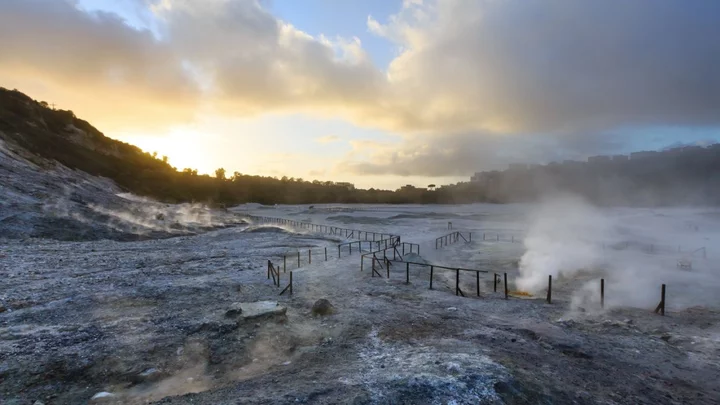Scientists are raising concerns about a supervolcano in Italy which is “on the brink” of erupting for the first time since 1538.
Campi Flegrei, also known as Phlegraean Fields, is an area of supervolcanic calderas in Naples, Italy.
If it did erupt again, it could plunge the world into a global winter. An eruption of the scale last seen in 1538 would also result in 100-feet tsunamis and the expulsion of volcanic gases into the stratosphere.
The results would kill wildlife and crops across the world, and the possible impacts have been explored in the new journal Communications Earth & Environment.
Sign up to our free Indy100 weekly newsletter
There’s been an increase in the number of earthquakes in the surrounding area over recent times, which has proved concerning viewing for scientists.
New research was undertaken by members of Italy’s National Institute of Geophysics and Volcanology (INGV) and University College London (UCL).
"Our new study confirms that Campi Flegrei is moving closer to rupture,” said lead author Professor Christopher Kilburn (UCL Earth Sciences).
Mauro Antonio Di Vito, director of the INGV’s Vesuvius Observatory, expressed concern about the evacuation from the local area.
He added: "These areas have been urbanised without considering the fragility. Buildings need to be better structured and we need a cultural change to really encourage people to do this."
Stefano Carlino, also of Vesuvius Observatory, added: "It's the same for all volcanoes that have been quiet for generations. Campi Flegrei may settle into a new routine of gently rising and subsiding, as seen at similar volcanoes around the world, or simply return to rest.
"We can't yet say for sure what will happen. The important point is to be prepared for all outcomes."
Have your say in our news democracy. Click the upvote icon at the top of the page to help raise this article through the indy100 rankings.









